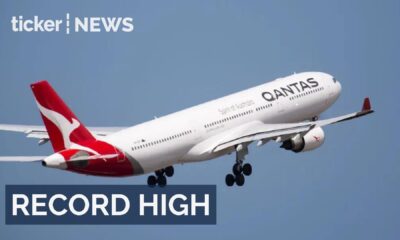Tech
Should you message your boss on Facebook?
Tech
Apple set to unveil budget iPhone 17e, new iPads and low-cost MacBook
Apple’s Tim Cook announces major product reveals this week, highlighting budget iPhone 17e, new iPads, and low-cost MacBook.
Tech
Nvidia posts record revenue as AI fears shake investors
Nvidia’s £68.1 billion revenue, up 73%, raises investor concerns about AI’s impact and tech customers’ financial health.
Tech
Meta launches lawsuits over alleged scam advertising operations
Meta targets scam advertising networks in Brazil, China, and Vietnam, intensifying its crackdown on scams across its platforms.
-



 Tech4 days ago
Tech4 days agoMeta launches lawsuits over alleged scam advertising operations
-



 Money5 days ago
Money5 days agoAustralia’s inflation report and Nvidia earnings impact explained
-



 News2 days ago
News2 days agoCrude oil prices spike amid U.S.-Israel military action
-



 News2 days ago
News2 days agoIran warns ships to avoid Strait of Hormuz
-



 News2 days ago
News2 days agoU.S. and Israel attack Iran, escalating regional conflict
-



 News21 hours ago
News21 hours agoIran live updates: Trump Says Iran strikes to continue for four to five weeks
-



 Tech5 days ago
Tech5 days agoNvidia earnings soar as AI drives 75% revenue growth
-



 News5 days ago
News5 days agoQantas announces 8,500 jobs and frequent flyer changes



